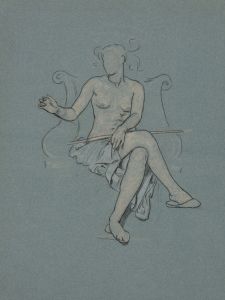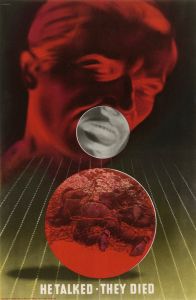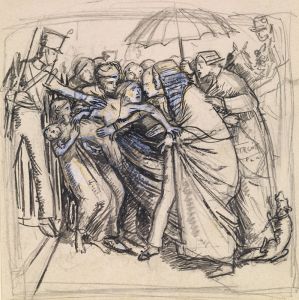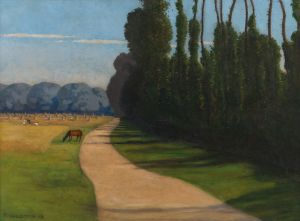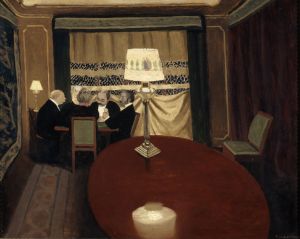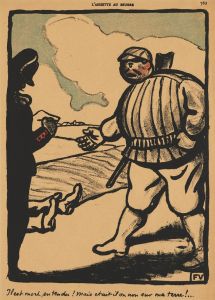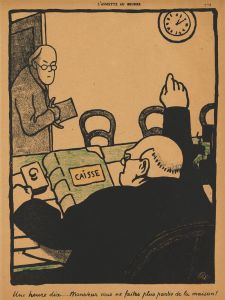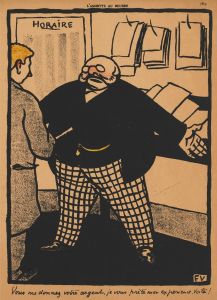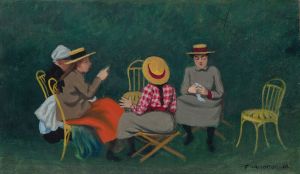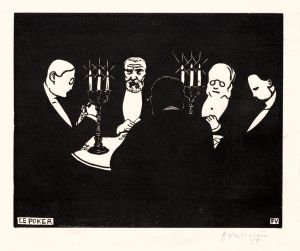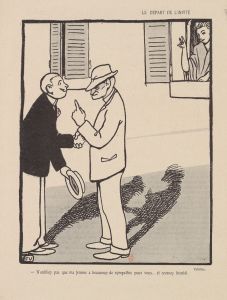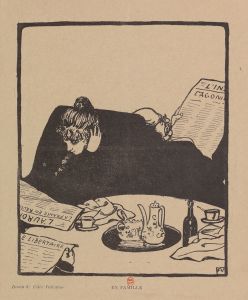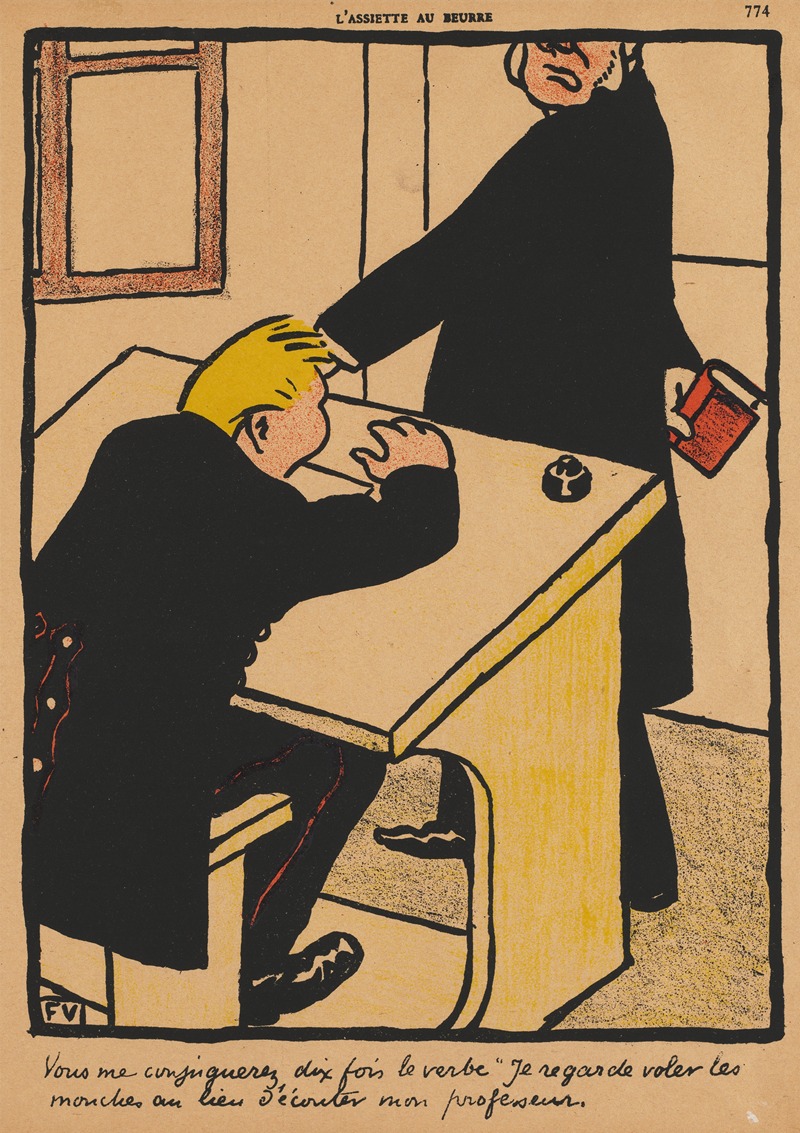
Crimes And Punishments; You shall conjugate…
A hand-painted replica of Félix Vallotton’s masterpiece Crimes And Punishments; You shall conjugate…, meticulously crafted by professional artists to capture the true essence of the original. Each piece is created with museum-quality canvas and rare mineral pigments, carefully painted by experienced artists with delicate brushstrokes and rich, layered colors to perfectly recreate the texture of the original artwork. Unlike machine-printed reproductions, this hand-painted version brings the painting to life, infused with the artist’s emotions and skill in every stroke. Whether for personal collection or home decoration, it instantly elevates the artistic atmosphere of any space.
"Crimes And Punishments; You shall conjugate…" is a painting by the Swiss-French artist Félix Vallotton, created in 1914. Vallotton was a prominent figure in the Post-Impressionist movement and a member of the Nabis group, which was known for its emphasis on symbolism and the use of bold colors and simplified forms.
The painting is notable for its stark and dramatic composition, which reflects Vallotton's interest in themes of justice and morality. The work is characterized by its use of strong contrasts and a limited color palette, which enhances the emotional impact of the scene depicted. The title itself suggests a contemplation of crime and retribution, hinting at a deeper narrative or moral lesson.
In "Crimes And Punishments; You shall conjugate…", Vallotton employs his signature style, which often includes a sense of detachment and an almost clinical observation of human behavior. This approach can be seen in the way he portrays the figures in the painting, who are rendered with a sense of stillness and formality. The composition is carefully balanced, with each element contributing to the overall sense of tension and foreboding.
The painting was created during a period of significant turmoil in Europe, just before the outbreak of World War I. This context may have influenced Vallotton's choice of subject matter, as the themes of crime and punishment were particularly resonant during a time of widespread social and political upheaval. However, Vallotton's work often transcends specific historical events, focusing instead on universal human experiences and emotions.
Félix Vallotton was born in Lausanne, Switzerland, in 1865 and later moved to Paris, where he became an integral part of the avant-garde art scene. He was known for his versatility, working in various media including painting, printmaking, and writing. Vallotton's work is characterized by its precision and clarity, often exploring themes of alienation, introspection, and the complexities of human relationships.
"Crimes And Punishments; You shall conjugate…" is housed in a private collection, and as such, it is not as widely known or studied as some of Vallotton's other works. Nevertheless, it remains an important example of his mature style and his ability to convey profound psychological and moral themes through his art.
Vallotton's legacy as an artist is marked by his unique ability to blend realism with symbolism, creating works that are both visually striking and intellectually engaging. His contributions to the Post-Impressionist movement and his influence on subsequent generations of artists continue to be recognized and appreciated.
In summary, "Crimes And Punishments; You shall conjugate…" by Félix Vallotton is a powerful painting that reflects the artist's interest in themes of justice and morality, rendered in his distinctive style. Created in 1914, the work captures the tension and uncertainty of its time while also addressing timeless human concerns. Vallotton's precise and thoughtful approach to his subject matter ensures that the painting remains a compelling and thought-provoking piece within his oeuvre.







